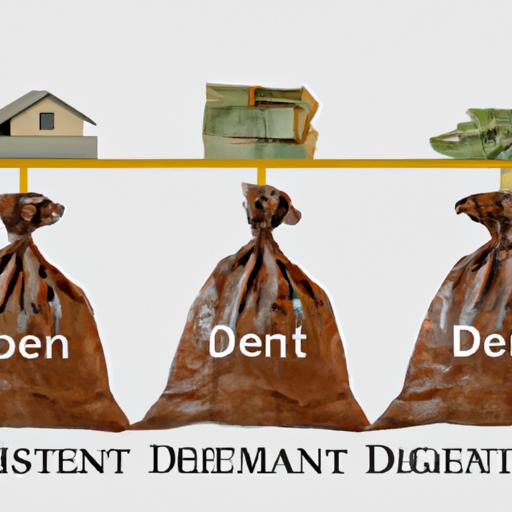Debt management and debt settlement are two crucial strategies for individuals facing financial challenges. Debt management involves creating a structured plan to repay debts, while debt settlement involves negotiating with creditors to reduce the total amount owed. Understanding the disparities between these approaches is essential for making informed decisions regarding debt resolution.
In today’s uncertain economic landscape, navigating the complexities of debt management versus debt settlement can be daunting. By delving into the nuances of each method, you can gain clarity on which path aligns best with your financial goals and circumstances. Let’s explore the intricacies of debt management and debt settlement to empower you in your journey towards financial stability.
What is Debt Management?
Explanation of Debt Management
Debt management is a strategic approach to handling debts by creating a structured repayment plan. This process typically involves working with a credit counseling agency to negotiate lower interest rates or payments with creditors. By consolidating debts into a single monthly payment, individuals can simplify their financial obligations and work towards becoming debt-free.
How Debt Management Works
In debt management, a credit counselor assesses your financial situation and helps create a customized repayment plan. This plan may involve negotiating with creditors to reduce interest rates, waive fees, or extend repayment terms. By adhering to the agreed-upon plan, individuals can gradually pay off their debts while receiving guidance and support from the credit counseling agency.
Benefits of Debt Management
Debt management offers several advantages, including the potential for lower interest rates, reduced monthly payments, and a clear roadmap towards debt repayment. Additionally, working with a credit counseling agency can provide valuable financial education and resources to help individuals develop sound money management habits for long-term financial stability.
What is Debt Settlement?
Explanation of Debt Settlement
Debt settlement is a debt relief strategy where individuals negotiate with creditors to accept a reduced amount as full payment for their outstanding debts. This process typically involves working with a debt settlement company or negotiating directly with creditors to reach a mutually beneficial agreement. By settling debts for less than the total amount owed, individuals can potentially alleviate financial burdens and expedite the path to debt freedom.
How Debt Settlement Works
The debt settlement process begins with a thorough assessment of an individual’s financial situation, including identifying outstanding debts and determining the feasibility of negotiating settlements with creditors. Once a negotiation strategy is established, individuals or their representatives engage in discussions with creditors to reach a settlement agreement. If successful, creditors agree to accept a reduced amount as final payment, providing a pathway to debt resolution and financial relief.
Benefits of Debt Settlement
Debt settlement offers several benefits for individuals struggling with overwhelming debt. By negotiating reduced balances with creditors, individuals can potentially lower their total debt burden, making it more manageable to repay. Additionally, debt settlement may lead to faster debt resolution compared to traditional repayment methods, allowing individuals to regain financial stability and move towards a debt-free future.
Key Differences Between Debt Management and Debt Settlement
Payment Structure
When comparing debt management and debt settlement, one significant difference lies in the payment structure. Debt management involves consolidating all debts into a single monthly payment, which is then distributed to creditors based on a predetermined plan. On the other hand, debt settlement typically requires a lump-sum payment to settle debts for less than the total amount owed.
Impact on Credit Score
Another crucial distinction between debt management and debt settlement is their impact on credit scores. Debt management, when executed as planned, can help individuals maintain a positive credit rating by making timely payments. In contrast, debt settlement may initially lower credit scores due to the negotiation process and potential partial payment of debts.
Legal Implications
Debt management is a formal agreement between the debtor and creditors, usually facilitated by a credit counseling agency. It does not involve legal proceedings or negotiations. In contrast, debt settlement often involves negotiation with creditors to reduce the total debt amount, which may have legal implications if not handled correctly.
Timeframe for Debt Resolution
The timeframe for debt resolution differs between debt management and debt settlement. Debt management typically involves a longer repayment period, as the goal is to pay off debts in full. Conversely, debt settlement aims to resolve debts quickly through negotiations, potentially leading to a faster resolution.
Cost Associated with Each Option
Cost considerations are essential when choosing between debt management and debt settlement. Debt management may involve fees charged by credit counseling agencies or financial institutions for their services. Debt settlement, on the other hand, often includes fees for negotiation services and may require payment of a percentage of the settled debt amount.
Which Option is Right for You?
Factors to Consider When Choosing Between Debt Management and Debt Settlement
When evaluating debt management and debt settlement, several factors come into play. Consider your financial situation, including the total amount of debt, income level, and ability to make monthly payments. Additionally, assess the impact on your credit score and the legal implications of each option. By weighing these factors, you can make an informed decision that aligns with your financial goals.
Pros and Cons of Each Option
Debt management offers a structured repayment plan that can help you gradually pay off your debts while maintaining a positive credit rating. On the other hand, debt settlement may allow you to settle your debts for less than the full amount owed, providing a quicker resolution but potentially impacting your credit score. Understanding the advantages and drawbacks of each option is crucial in determining the most suitable approach for your unique circumstances.
Personalized Advice for Determining the Best Option for Your Financial Situation
Seeking personalized advice from financial experts or credit counselors can provide valuable insights into choosing between debt management and debt settlement. These professionals can assess your financial situation, evaluate the pros and cons of each option, and offer tailored recommendations to help you achieve your debt resolution goals effectively.
Conclusion
In conclusion, the choice between debt management and debt settlement is a pivotal decision that can significantly impact your financial well-being. By weighing the pros and cons of each option and considering factors such as payment structure, credit score implications, legal ramifications, and cost, you can make an informed choice tailored to your unique situation.
Remember, seeking professional advice and guidance is crucial when navigating the complexities of debt resolution. Whether you opt for debt management or debt settlement, the ultimate goal is to regain control of your finances and work towards a debt-free future. Stay proactive, stay informed, and take the necessary steps to secure your financial stability.


